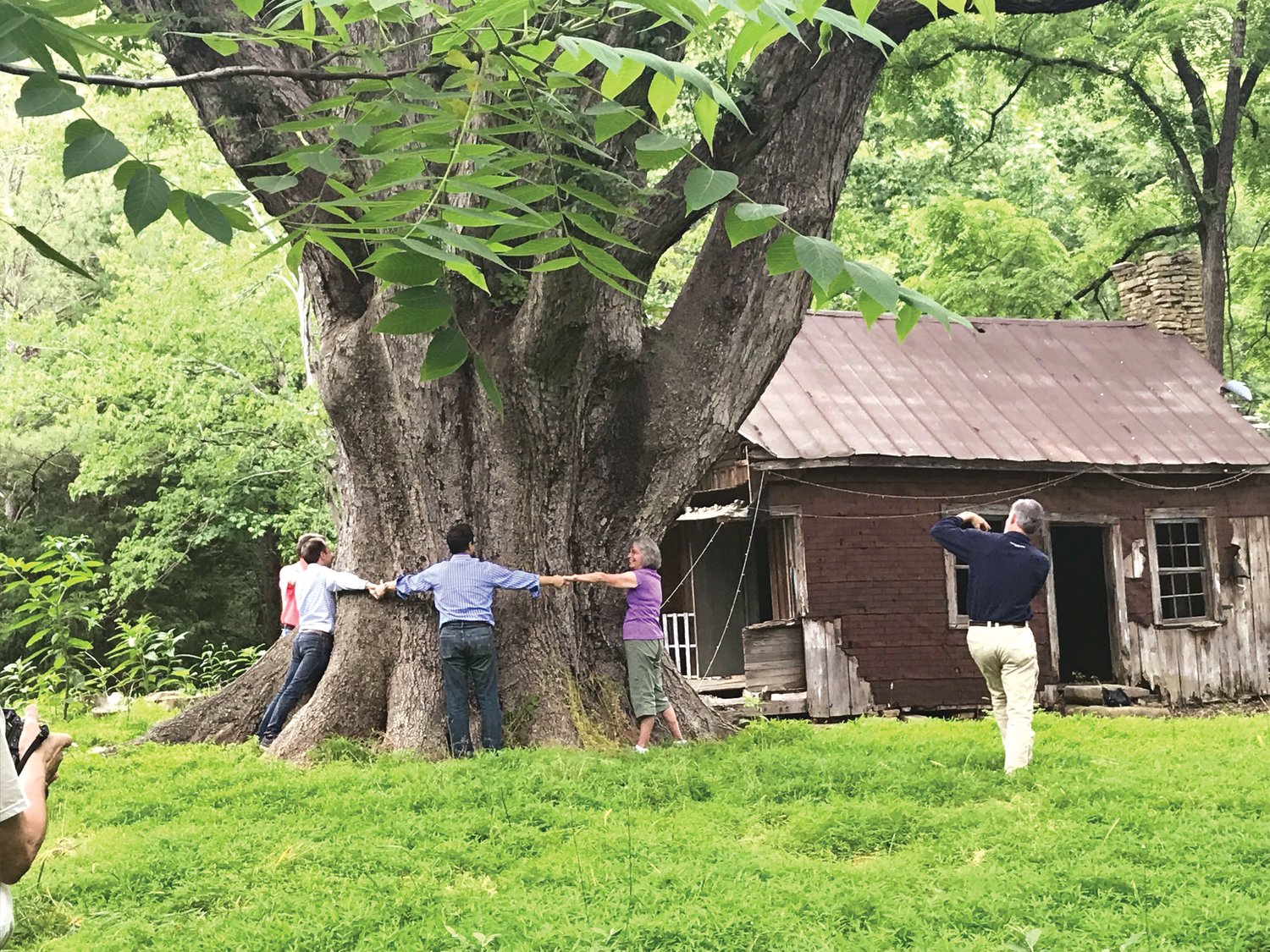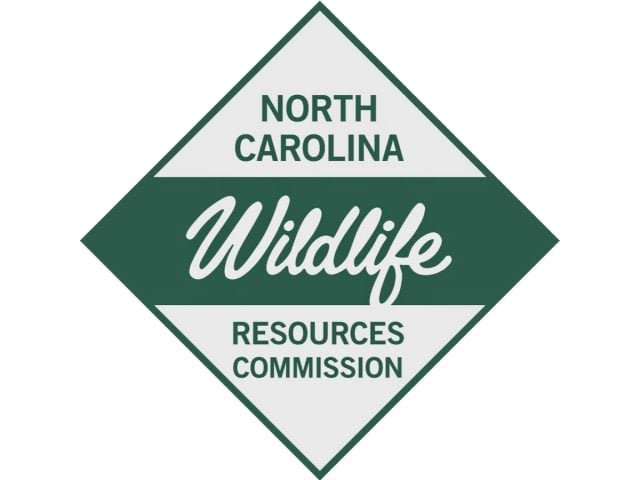Chatham County, NC
Home MenuGovernment » Departments & Programs: I-Z » Planning » Conservation
Chatham Conservation Groups
Conservation is collaborative.
When we work together to share ideas, resources, and support, we can strengthen our efforts towards shared goals. Chatham County’s conservation community is stronger when we coordinate across local governments, non-profits, and state organizations.
Explore the groups working on conservation in our county and look below to find their website, missions, and opportunities for involvement.
Local Non-Profit Groups

Mission: Triangle Land Conservancy strives to create a healthier and more vibrant Triangle region by safeguarding clean water, protecting natural habitats, supporting local farms and food, and connecting people with nature through land protection and stewardship, catalyzing community action, and collaboration.
How to get involved:
- Engage with educational opportunities on land conservation, DEIJ, and public lands.
- Explore the many nature preserves throughout the region.
- Attend events ranging from hikes to citizen science projects to virtual conversations with local conservation leaders.
Mission: The mission of the Chatham Conservation Partnership (CCP) is to develop and implement strategies for a community conservation vision that builds awareness, protection, and stewardship of Chatham County's natural resources.
How to get involved:
- Attend quarterly meetings providing updates on conservation efforts throughout the county.
- Explore conservation planning tools and solutions.
- Engage with educational materials on rare species and habitats in Chatham.

Mission: The Haw River Assembly’s mission is to promote environmental awareness, conservation and pollution prevention; to speak as a voice for the river in the public arena; and to put into peoples’ hands the tools and the knowledge they need to be effective guardians of the river. Our Haw Riverkeeper advocates for clean water, and against threats to the river.
How to get involved:
- Attend the annual Haw River Festival.
- Volunteer at one of their river clean up days.
- Help with hands-on conservation programming and educational opportunities on the river.
Mission: "The Lower Haw River State Natural Area is a special place that we're committed to conserving and enhancing for current enjoyment while creating a legacy for future generations."
How to get involved:
- Stay up to date on recreational opportunities and instructions along the river.
- Assist with trail restoration projects.
- Attend stewardship events and lend a hand in keeping the Lower Haw clean.

Mission: The Rocky River Heritage Foundation’s mission is to protect the economic, natural, environmental and historical resources of the Rocky River watershed.
How to get involved:
- Explore online educational reports about the species and habitats unique to the Rocky River.
- Volunteer in a Bio Blitz and help collect data on aquatic species inventories.
- Brush up on your watershed facts and learn the history behind the Rocky River and its surrounding watersheds.

Mission: Grand Trees of Chatham is an awards program for the champion, valuable and irreplaceable trees of Chatham County, NC. Grand Trees uses a public nomination process to identify, recognize, and document the "Grand Trees of Chatham." All nominated trees are evaluated by a jury of tree professionals using a standard system established by state and national champion programs. Owners retain all legal rights to their tree and evaluations are done only with owner approval.
How to get involved:
- Attend a guided hike to see some of the oldest trees in the county.
- Utilize your forestry knowledge to lend support in grand tree designation.
- Get all your tree-care questions answered at the Grand Trees booth at local events and through their organization email.
Mission: The Piedmont Conservation Council seeks to leverage people and resources for innovative projects that promote conservation and sustainable communities.
How to get involved:
- Volunteer as a board member representing your organization.
- Provide services such as GIS, grant writing, or other technical expertise.
- Suggest a project in your community that PCC could start or get involved with.
County Government Departments and Advisory Boards
The Cooperative Extension Department strives to provide educational programs that are accessible to all individuals, families and communities to help them work towards economic prosperity, environmental stewardship and improved knowledge and skills for a safe, healthy and productive life. They offer informal educational programs, publications, events and one-on-one assistance in the areas of agriculture and natural resources; family and consumer education; 4-H and youth development; and community and rural development.
For more information, explore the Cooperative Extension webpage or contact Ginger Cunningham, Cooperative Extension Director, at ginger.cunningham@chathamcountync.gov.
The Environmental Quality Department manages solid waste and recycling, as well as the Sustainability Division. This division manages sustainability projects in Chatham County, such as adding solar panels to county buildings and installing electric vehicle charging stations to the county.
For more information explore the Sustainability webpage or contact Kevin Lindley, Environmental Quality Director, at kevin.lindley@chathamcountync.gov.
The mission of the Planning Department is to manage the land development and permitting processes of Chatham County in an efficient and effective manner. Department staff address conservation through long-range plans, considering land conservation in development review, special projects, and prioritizing conservation in the drafting and enforcement of land-use regulations.
For more information, review the Planning Department webpage or contact Brandon Dawson, Conservation and Transportation Planner, at brandon.dawson@chathamcountync.gov.
The Parks and Recreation Department seeks to create a system of parks, facilities and programs that foster the health, wellness and quality of place for all Chatham county residents. The department addresses conservation through educational programming in parks, prioritizing and protecting native species, and through the creation and management of trails.
For more information, explore the Parks and Recreation webpage or contact Ben Rippe, Trails and Open Space Planner, at ben.rippe@chathamcountync.gov.
The SWCD strives to ensure the wise use of our natural resources, soil, water, air, plants, and animals by providing technical and education services to land users. The department addresses conservation through programs and technical assistance focusing on soil health, animal waste, water quality, and environmental education.
For more information, explore the Soil and Water Conservation District webpage or contact Susannah Goldston, District Director, at Susannah.goldston@chathamcountyn.gov.
The Watershed Protection Department addresses conservation through the monitoring and regulation of watershed ordinances, focusing on four major programs: Erosion Control, Stormwater Management, Riparian Buffers, and Flood Damage Prevention.
For more information, explore the Watershed Protection webpage or contact Rachael Thorn, Watershed Protection Director, at Rachael.thorn@chathamcountync.gov.
Mission: The purpose of the Climate Change Advisory Committee will be to make recommendations to the Board of Commissioners and others regarding likely climate change impacts in Chatham County and ways to adapt to and mitigate these impacts, including: (a) reducing emissions of greenhouse gases (primarily CO2) with related improvements in air quality, (b) promoting the use of renewable energy, (c) promoting carbon neutral/green building standards for new and existing buildings both public and private and (d) encouraging resilient conservation–oriented land uses and both residential and commercial land development standards that foster climate change mitigation and adaptation.
How to get involved:
- Attend CCAC public meetings to help guide Chatham County’s efforts towards a carbon-negative and resilient future.
- Engage with helpful resources on climate change and how Chatham County has been and will continue to be affected.
- Apply to serve on the committee and contribute your climate knowledge.
Mission: The mission of the Environmental Review Advisory Committee (ERAC) is to advise the Board of Commissioners on environmental policy and related county ordinances, including the watershed ordinance. Conduct special projects, as assigned, to protect the environment. Assist County staff with review of required state and federal environmental permits for projects in the county. Partner with towns in the county and other interested governmental agencies on mutual concerns related to the environment. The Environmental Review Advisory Committee also serves as the Watershed Review Board.
How to get involved:
- Attend monthly public meetings to voice your concerns and see environmental review in action.
- Apply to serve on the committee and contribute your environmental knowledge.
State Organizations Working in Chatham

Mission: By gathering and sharing information about rare species and natural communities, North Carolina’s Natural Heritage Program ensures public access to information that is needed to weigh the ecological significance of natural areas and to evaluate potential ecological impacts of conservation and development projects.
How to get involved:
- Explore and download data on vital natural habitats and species across North Carolina.
- Read publications on the state of habitat conservation and recommendations for local leaders.
- Lend your support in field collection of natural habitat data on new conservation lands.

Mission: The N.C. Wildlife Resources Commission (NCWRC) is the state government agency created by the General Assembly in 1947 to conserve and sustain the state’s fish and wildlife resources through research, scientific management, wise use and public input.
How to get involved:
- Explore action plans for conserving wildlife in North Carolina.
- If you’re a landowner, talk with a conservation specialist about best practices for managing your land for wildlife conservation.
- Engage with the Green Growth Toolbox to learn how local governments can utilize land use planning to balance development and wildlife conservation.
Want to stay informed on Chatham County’s conservation work? The Chatham County Planning Department sends out a quarterly conservation newsletter to the Chatham Conservation Partnership email list, providing updates on conservation efforts by our county government.
Join the Email ListThere’s plenty to conserve in Chatham…and plenty to explore! Our county boasts incredible parks, trails, and green space.
Find Natural Spaces to ExploreAs we push for a greener Chatham County, it’s important to set and understand our intentions so that our efforts are more impactful.
Learn More About the Benefits of Conservation in ChathamThe need for conservation in Chatham is a complex problem. Fortunately, we can use online tools, like interactive maps or graphics, to help us better understand.
Explore Conservation ToolsConserving natural resources is a top priority for the Chatham County government, with projects spanning many departments.
Learn More About Chatham’s Conservation Efforts
